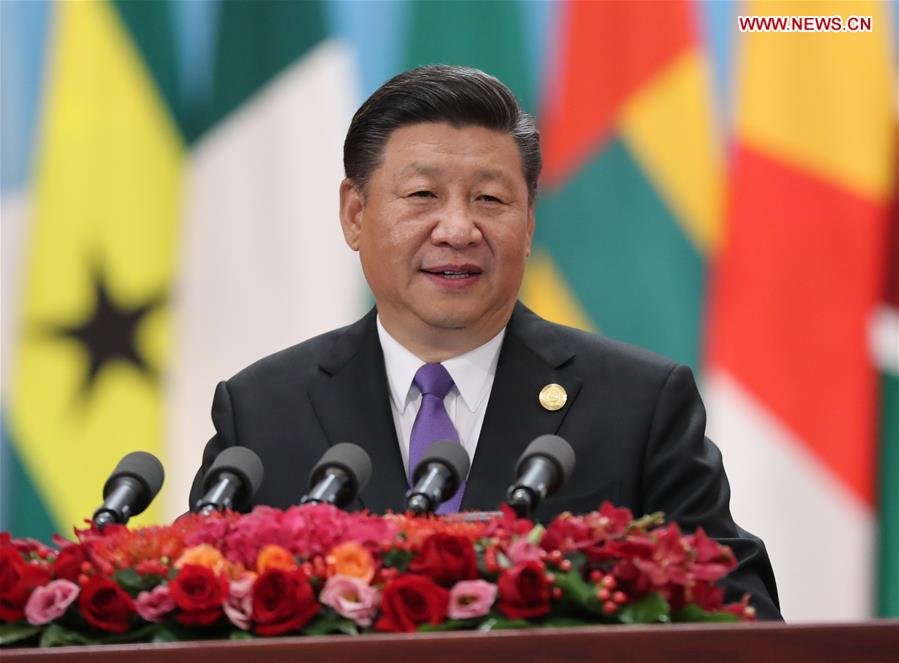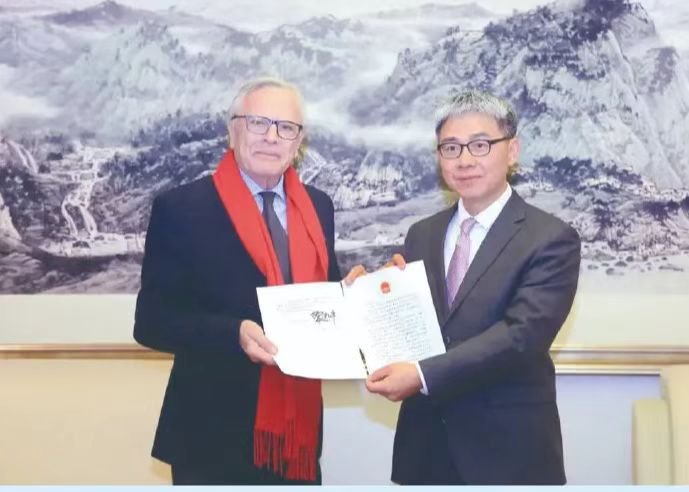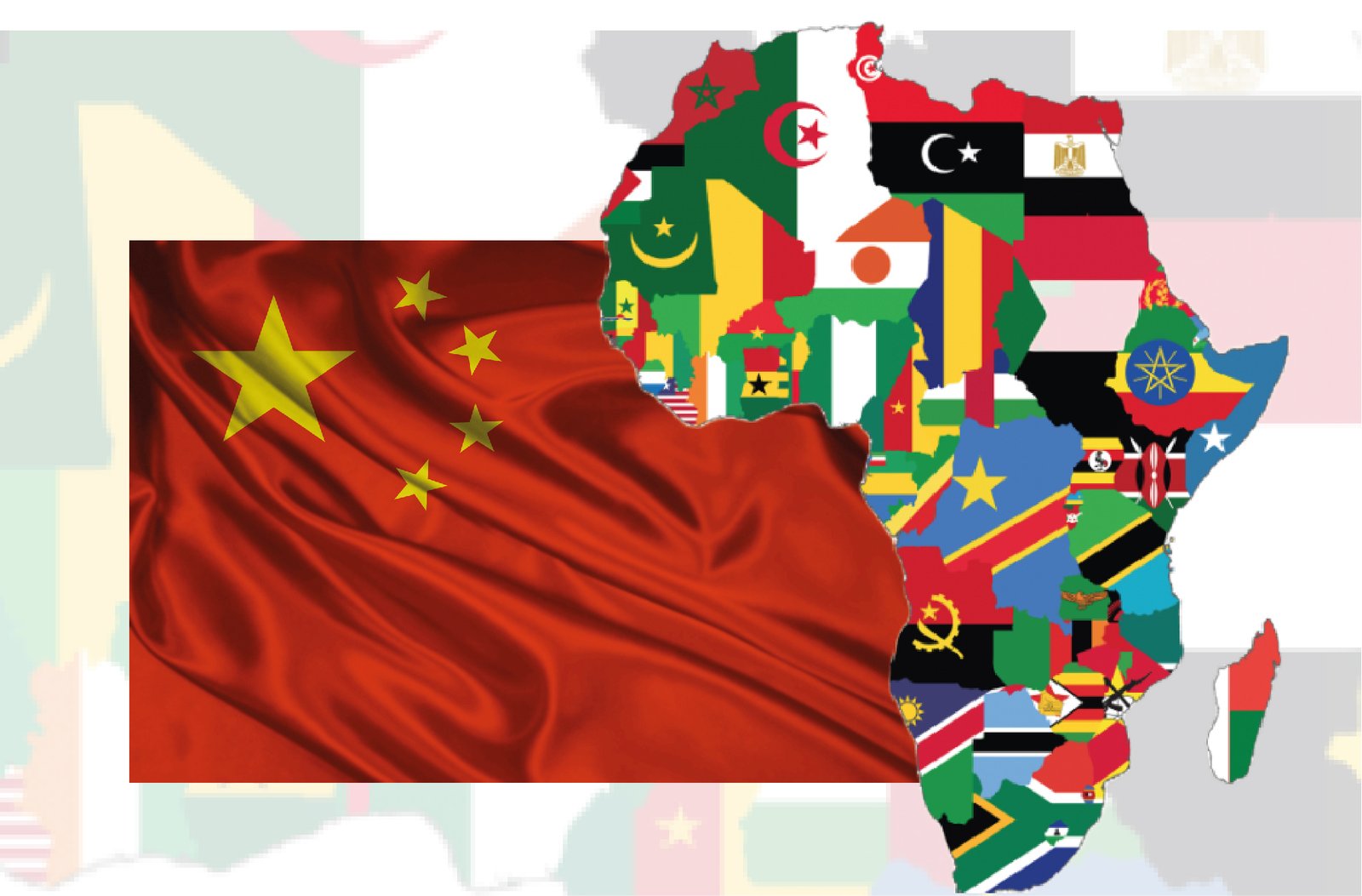
[t4b-ticker]
Gert Grobler, a former veteran diplomat of South Africa and honorary professor of the Institute of African Studies at Zhejiang Normal University (China), and 63 scholars from 50 African countries sent a joint letter to Xi, warmly congratulating on the third plenary session of the 20th CPC Central Committee, highly commending the historic achievements of the FOCAC, and expecting that the upcoming Summit of the FOCAC would write a new chapter in building a China-Africa community with a shared future and the joint modernization of the Global South.

Introduction to President Xi Jinping’s Reply
President Xi Jinping’s recent reply to scholars from 50 African countries represents a pivotal moment in the ongoing relationship between China and Africa. The correspondence occurred against a backdrop of increasing geopolitical engagement and diplomatic exchanges, emphasizing the significance of the conversation. Scholars from the African continent presented inquiries that addressed critical issues surrounding economic cooperation, infrastructure development, cultural exchange, and political alignment between the two regions. These questions reflect the intrinsic value of mutual understanding and cooperation, which President Xi Jinping sought to address comprehensively.
The historical ties between China and African nations have deep roots that date back to the mid-20th century, during the decolonization period. Over the decades, this relationship has evolved from mere diplomatic recognition to robust economic partnerships and cultural collaborations. China’s growing investment in African infrastructure, such as railway networks, ports, and telecommunications, demonstrates the depth of this alliance. Similarly, educational exchanges and cultural programs have fostered a richer understanding and closer people-to-people ties between the regions.
In response to the African scholars, President Xi highlighted the importance of this multifaceted relationship, underscoring China’s commitment to supporting African development goals. He emphasized the shared values of non-interference, mutual respect, and win-win cooperation that guide China’s foreign policy. This reaffirmation of support is especially pertinent in the current global climate, where multilateralism and cooperative strategies are increasingly vital for addressing challenges such as health crises, economic instability, and climate change.
In essence, President Xi Jinping’s reply is not merely a diplomatic gesture but a reaffirmation of China’s longstanding and evolving partnership with Africa. This foundational understanding sets the stage for deeper insights into the specific concerns addressed in his response, as well as the broader implications for Sino-African relations in the 21st century. The correspondence underscores the strategic and mutually beneficial nature of this relationship, highlighting a future-oriented vision that encourages sustained engagement and development.
Key Themes and Messages in Xi Jinping’s Letter
President Xi Jinping’s letter to African scholars emphasized several pivotal themes, each underscoring the importance of the relationship between China and Africa. One central theme is the strengthening of Sino-African relations, which Xi views as a cornerstone of global diplomacy and economics. He highlighted the historical ties between the two regions, affirming China’s commitment to fostering mutual respect and understanding. This sentiment aligns with China’s broader diplomatic approach, emphasizing peaceful collaboration and shared growth.
Economic cooperation was a significant focus in Xi Jinping’s correspondence. He outlined various initiatives aimed at promoting bilateral trade and investment, with a particular emphasis on infrastructure development. Xi mentioned ongoing and future projects in transportation, energy, and technology sectors as examples of how Sino-African economic ties will be fortified. By investing in critical infrastructure, China aims to support sustainable industrialization across the African continent, thus contributing to poverty alleviation and economic prosperity in the region.
Educational and cultural exchanges were also prominent in Xi’s message. He advocated for the expansion of academic partnerships and scholarships as tools to enhance intellectual and cultural affinity between China and Africa. By fostering educational ties, Xi believes that both regions can benefit from the exchange of knowledge and innovation. This mutual intellectual enrichment is perceived as a key element for the long-term development and deepening of the Sino-African relationship.
Addressing global challenges such as poverty, health crises, and climate change, Xi underscored the necessity for collaborative efforts. He pointed out that China and Africa, by working together, can effectively tackle these complex issues. Xi’s letter highlighted several joint initiatives, including healthcare programs targeting infectious diseases and environmental projects aimed at promoting conservation and sustainable development. Such collaborations, according to Xi, are crucial in building a more resilient and equitable global community.
In essence, President Xi Jinping’s letter conveyed a vision of a strong, cooperative future between China and Africa. By addressing critical areas like economic cooperation, educational exchanges, and global challenges, Xi outlined a multifaceted approach aimed at fostering mutual development and addressing shared concerns. The letter serves as both a reaffirmation of existing ties and a call to deepen the strategic partnership between China and Africa.







